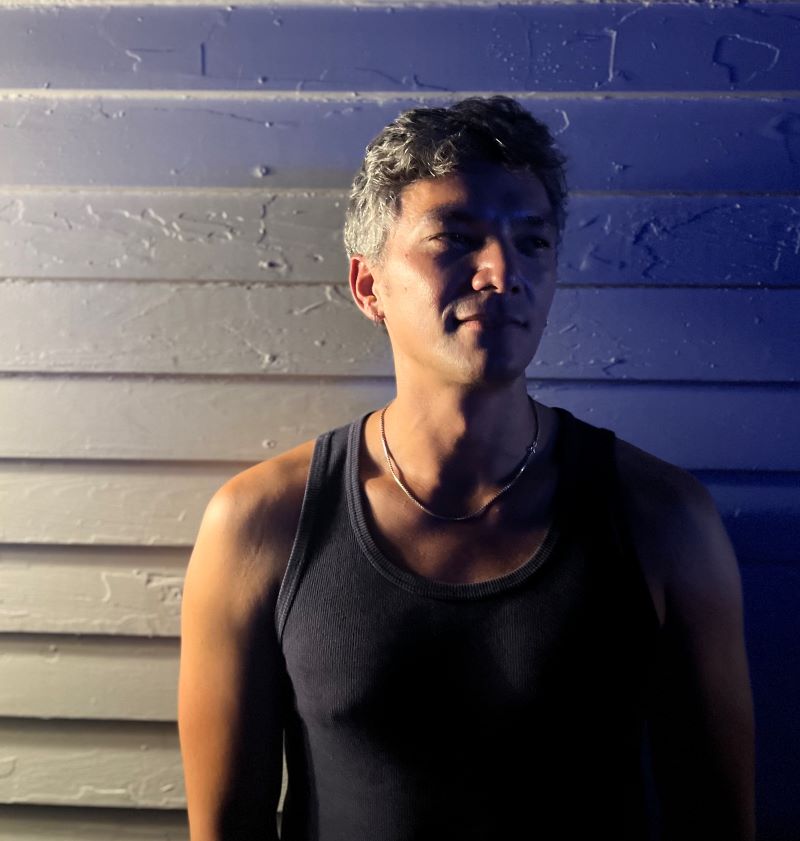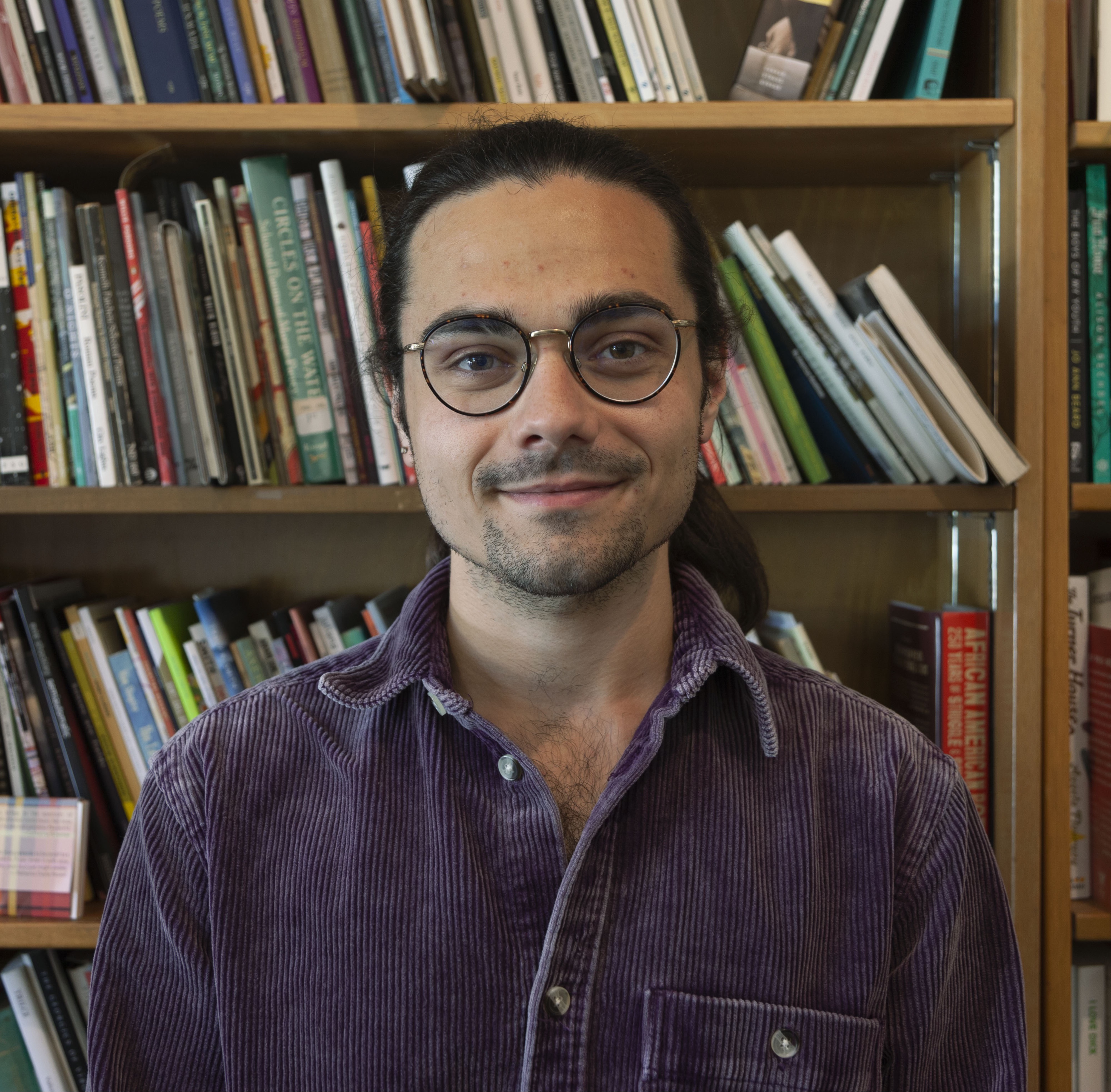Announcing the 2022 Winners of the Kraft-Kinsey Award
The Kraft-Kinsey Award supports a writing project by an Indiana University MFA student that makes substantial use of the Kinsey Institute’s materials and archives. The award is a unique opportunity for emerging writers to give voice to issues of human sexuality, as exemplified by the Kinsey Institute and its collections, while simultaneously discovering new connections between human sexuality and art. The award of $1,000 is made possible through partnership between Kinsey Institute and the Creative Writing Program at Indiana University, and funded by the Martha C. Kraft endowment.
Congratulations to our 2022 winners: Tyler Patton and Tyler Raso.

Tyler Patton is a writer from Portland, Oregon. He currently serves as fiction editor of Indiana Review and is pursuing his MFA at Indiana University.
For his current work with the collections at the Kinsey institute, Tyler is working with diaries, journals, and other primary sources of witness and testimony from the height of the HIV/AIDS crisis in North America. His work explores the legacy of the 80s and 90s for queer communities, and searches for resonance with another major crisis of our time: climate collapse. He is interested in how eroticism adapts to and survives the threat of various apocalypses and whether queer responses to AIDS can provide a roadmap for finding joy and intimacy in the face of climate catastrophe.

Tyler Raso is an MFA candidate in Poetry at Indiana University whose current work reaches toward a collaborative poetics with their childhood selves across time. Thinking with the complications of “the closet” as a portable figure of queer identity, they’re most concerned, at present, with transformation, joy, literal and figurative confinement, and the failures and absences of language. Beginning with their upbringing in an Evangelical, military family, with the ways in which they stole queer time from a straight world, they write and dream toward queerness as prismatic, and a site of belonging. In this, they work through lyric questioning, fragmentary narrative, to, as much as possible, cut against the grain of gender-as-objecthood, to open toward a queer, trans, utopic self/ves-making or world/s-making. This means, their work is primarily interested in rupture, in unlearning.
As their project witnesses and interrogates vocabularies of objecthood, they hope to work with the Kinsey Institute collections to expand into a tender, messy, transformative invocation of queer possibility in the material world. To think with, especially, toys, dolls, puppets as windows into or witnesses of queer discovery. The Kinsey Institute’s selections of theoretical groundings in sexual development in childhood and gender nonconformity will root the exploration, while material centered on primary and imaginative experience of objects (as an expansive category) like Barbie Culture, or William’s Doll, and pulp fiction like The Dollmaker will give shape to the curiosity, how the objects we live with or through contain, invoke, or name desires or intimacies beyond the grasp of language.
For over 75 years, the Kinsey Institute at Indiana University has been a trusted source for investigating critical issues in sex, gender and reproduction and advancing sexual health and knowledge worldwide. The Kinsey Institute Collections encompass print materials, film and video, fine art, artifacts, photography, and archives that focus on human sexuality. The Institute has collected publications, objects, art, and data from six continents, and its holding span more than 2,000 years of human history and run the gamut of technologies—from ink on paper, to DVD and digital records.
For more information about the Kraft-Kinsey Award for MFA Students, please contact Dr. Samrat Upadhyay, Martha C. Kraft Professor of the Humanities, at 812-856-5882 or supadhya@indiana.edu.
Support Kinsey
Love is more than an emotion. It is essential to our individual and collective well-being. Your support will help the Kinsey Institute advance research and education in the science of love and give a diverse field of researchers the resources they need to make new discoveries.
Pledge your support